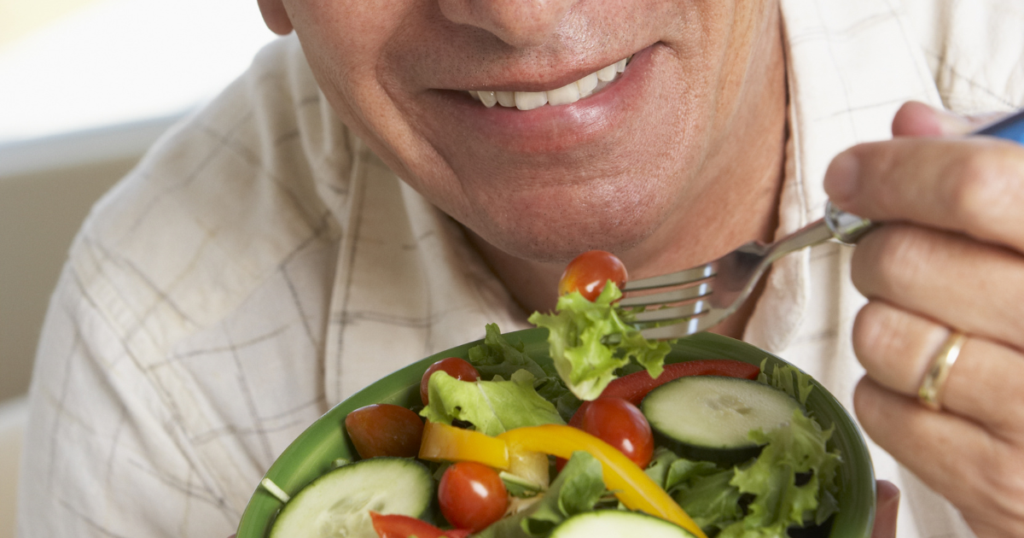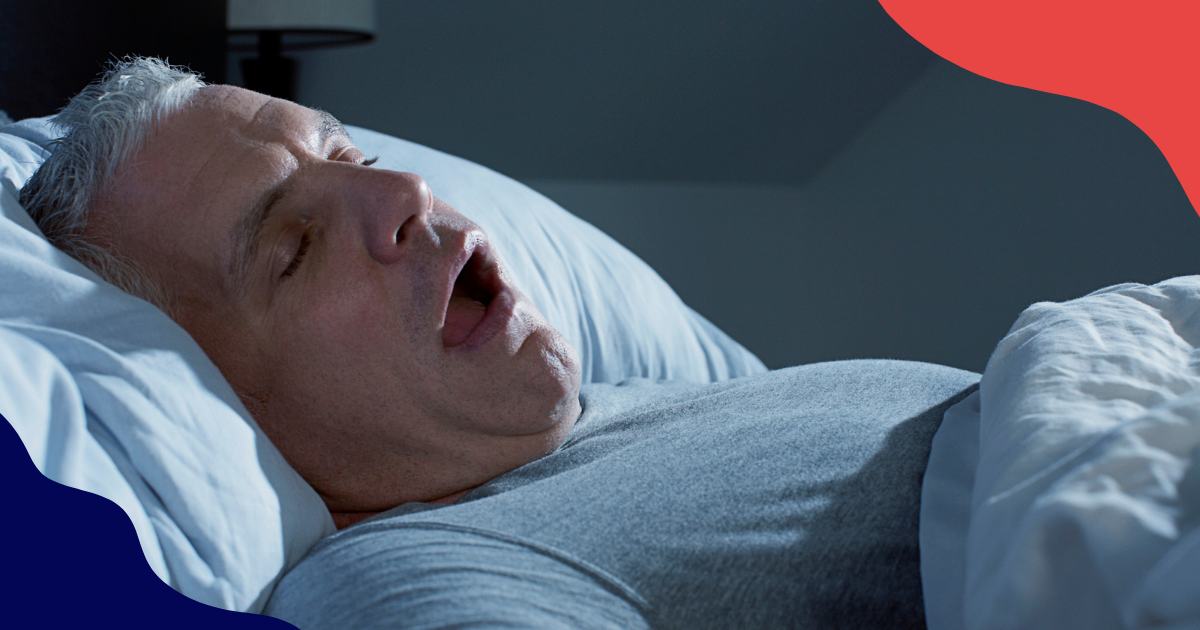Numerous studies have consistently found a positive correlation between having IBS and experiencing erectile dysfunction. This raises the question: does IBS cause erectile dysfunction? This article examines the connection between IBS and erectile dysfunction and expounds on good gut health practices that also enhance male sexual health.
What is IBS?
Irritable Bowel Syndrome (IBS) is one of the most common gut diseases, affecting 1 in 10 people worldwide. Its symptoms include abdominal pain, bloating, cramps, diarrhoea, and/or constipation. There is no known cause for IBS, but its triggers are usually stress and/or certain foods. Men with IBS may have a delicate gastrointestinal (GI) tract, leading to food allergies, intolerances, and sensitivities. There is also no cure for IBS, but it is not life-threatening and often manifests in flare-ups. It can be managed by adopting a lifestyle most suited to the individual who has IBS.
Does IBS Cause Erectile Dysfunction?
Your gut health affects almost every other biological process in your body, including your reproductive system. Research from Taiwan found that men with IBS are three times more likely to develop erectile dysfunction compared to men without IBS. Another study found that IBS increases the risk of both physiological and psychogenic erectile dysfunction, which means your gut health is not only linked to your physical well-being. Any issues with the gut also strongly affect mental health, which is a precursor to sexual dysfunctions.
Peruvian researchers also found that medical students diagnosed with IBS have a 108% higher rate of erectile dysfunction. They highlighted that medical students are under immense amounts of stress. Stress, by itself, can directly cause both IBS and erectile dysfunction. Inflammatory Bowel Disease (IBD) is another disorder of the gut that is similar to IBS, except men with IBD tend to suffer from inflammation anywhere along the GI tract (from mouth to anus). Studies have found a strong prevalence of erectile dysfunction among those with IBD.
How IBS Connects to Erectile Dysfunction
While IBS seems to correlate with incidences of erectile dysfunction, it does not definitively answer the question: “Can IBS cause erectile dysfunction?” One may argue that they share risk factors and triggers. For example, it is true that both IBS and erectile dysfunction can be induced by stress. When you have an influx of cortisol in your bloodstream, your blood pressure increases as your body enters fight-or-flight mode. This means chronic stress puts you in a constant state of hypertension, which can inhibit erections.
Stress can also lead to various chronic diseases, such as diabetes, cardiovascular diseases, and endocrine issues, all of which can cause erectile dysfunction. Cortisol also has an inverse relationship with testosterone, meaning the more stressed you are, the lower your circulating testosterone levels will be. Testosterone is crucial for the erectile and ejaculatory process, sexual arousal, and sperm production. Stress is a response of the sympathetic nervous system, which suppresses the parasympathetic nervous system, also known as the rest-and-digest system.
Ultimately, stress alone can wreak havoc on both digestion and erection. However, your gut and penis are more intricately linked because of the gut microbiome. Your gut bacteria also influence hormonal production. Researchers have noted that your gut can affect nerve signals and circulation. If not enough blood is flowing to the penis or the nerves can’t communicate properly, a man may be unable to achieve an erection. Abdominal pain and mental distress caused by IBS can also impede libido and trigger performance anxiety.

Managing IBS and Erectile Dysfunction
Making appropriate lifestyle changes is non-negotiable when it comes to IBS. Erectile dysfunction also requires lifestyle adjustments, as its causes tend to stem from unhealthy habits, though additional medical treatment may also be necessary. To make it easier for you, we have created a guide addressing both IBS and erectile dysfunction:
- Eliminate Stressors
Getting your stress under control is your most urgent task. You can try your hardest to follow every healthy habit, but if you are constantly under stress, you might not see any improvements in your IBS or erectile dysfunction. To reduce stress, you need to reflect on your triggers. List them and identify which ones you can immediately eliminate. For example, purge sources of negative content from your social media. Unsubscribe from rage-bait pages and unfollow people who constantly complain.
- Recalibrate Your Approach
You can’t eliminate every stressor. For instance, you may feel stressed due to parenting responsibilities or deadlines. In such cases, you should adjust your mindset or approach. For parenting, you could consult a therapist to help you navigate challenges or hire a babysitter. As for deadlines, you could employ task management strategies to avoid feeling overwhelmed. If your workload is excessive, seek assistance from your manager or colleagues.

- Use Relaxation Techniques
Even if you have the best strategy for whatever you’re dealing with, you’re still likely to feel stressed if you’re emotionally chaotic. To soothe dysregulated emotions, try relaxation techniques such as deep breathing (exhaling slowly), meditation, and yoga. You could also watch ASMR (relaxing visuals and sounds) or play casual and calming games. Alternatively, you could take a nap. Just ensure you don’t sleep for too long and accidentally disrupt your body clock.
- Do a Low FODMAP Diet
FODMAP stands for fermentable oligosaccharides, disaccharides, monosaccharides, and polyols, which are carbohydrates that are difficult to digest. Those with IBS have a more sensitive colon, so improperly digested food may cause problems once it enters the large intestine. By following a low FODMAP diet, men with IBS may be able to reduce their flare-ups. Note that, although vegetables are healthy, some are high in FODMAPs while others contain them in lower proportions.
- Create a Food Tracker
List what you eat every day so that, when your IBS flares up, you can identify foods that may trigger your symptoms. You should also record your specific IBS symptoms, as some foods may cause bloating while others may lead to frequent trips to the toilet. There are mobile apps that you can use to monitor your diet. To make this process easier, simplify your diet. You can test how your body reacts by removing items such as gluten and dairy, then reintroducing them. Many IBS sufferers struggle to process gluten.
- Eat Fermented Food
Fermented food not only helps repopulate the good bacteria in your gut microbiome but is also easier to digest, as the bacteria have already partially broken it down. This places less strain on your digestive system, requiring less effort to process food. This is particularly beneficial for those who need to heal their GI tract or have other gut conditions. Kefir milk may help people with IBS. If you experience constipation due to IBS, you might want to try sauerkraut and kombucha.
- Avoid Microbiome Killers
Certain factors can decimate your gut microbiome or convert neutral or good bacteria into harmful bacteria. Stress, excessive sugar intake, binge eating, GMO products, alcohol consumption, and over-reliance on antibiotics can all damage your gut microbiome. Sugar tends to feed harmful bacteria, while GMO products are often cultivated using pesticide laced with antibiotics. Apart from antibiotics, all these factors also directly harm your erectile health.
- Test Your Fibre Tolerance
Fibre feeds your gut bacteria, but it can cause bloating if you have a condition called small intestinal bacterial overgrowth (SIBO). If there’s an overgrowth of harmful bacteria or not enough beneficial bacteria to manage the influx of fibre, you might start to feel unwell. Gradually increasing your fibre intake or trying fermented foods first is recommended. A carnivore diet can help prevent SIBO flare-ups, while fasting can give your body time to repair the gut.
- Try the Ketogenic Diet
The ketogenic diet is widely known for weight loss, but it is also beneficial for those with gut conditions. Instead of relying on sugar, it taps into your stored fat for energy. You also avoid weight gain, as the diet consists of 75% healthy fats while limiting total carbohydrate intake to a maximum of 5%. The ketogenic diet works best when paired with fasting, allowing you to spend more time burning fat and achieving autophagy. Autophagy enables the breakdown of old cell components, replacing them with new ones to counter cellular ageing.
- Seek Medical Help
For men with erectile dysfunction, lifestyle changes alone may not be sufficient. It is essential to seek appropriate IBS and erectile dysfunction treatment. There are medications that address IBS symptoms, helping you manage flare-ups more effectively. Additionally, a thorough medical check-up can ensure all potential causes of your erectile dysfunction are identified. Even if your IBS is under control, other underlying conditions may still affect your ability to achieve a strong erection.
Conclusion
IBS can lead to erectile dysfunction, but it can be managed by adopting the right lifestyle. However, erectile dysfunction is complex and often results from multiple factors. Our doctors will help you identify all the potential causes of your erectile dysfunction and design a comprehensive treatment plan to restore your sexual health. Book an appointment with us and receive a FREE consultation!




